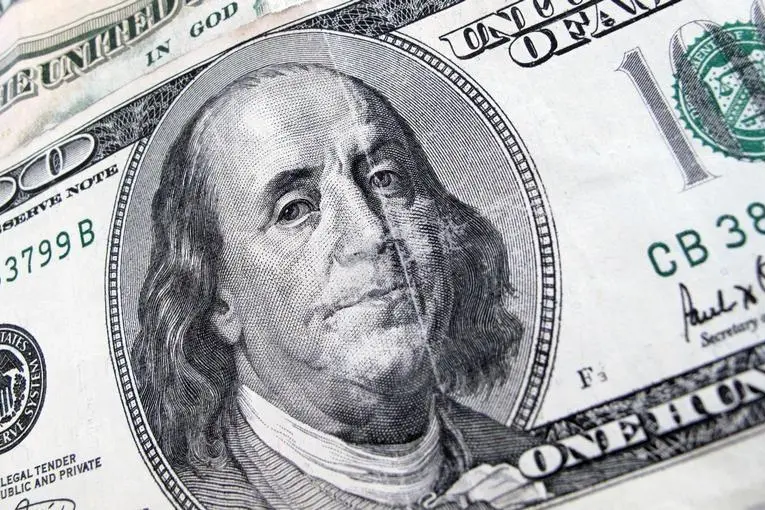PHOTO
The dollar hovered near a one-week high on Thursday after its biggest daily percentage gain this month against a basket of peers a day before as minutes of the last Fed meeting revealed a willingness to raise interest rates among some officials,
The pound was unmoved by the announcement of a British election, having jumped to a two-month peak following hotter-than-expected inflation on Wednesday, while the New Zealand dollar continued its climb as an unexpected rise in local retail sales added to hawkish guidance from the central bank pushing back bets for rate cuts.
The dollar index, which tracks the currency against six major rivals including sterling, the euro and yen, was a whisker higher at 104.93 after gaining 0.28% the day before.
Fed officials at their April 30-May 1 session indicated they still had faith that price pressures would ease, if only slowly, but the meeting summary also reflected discussion of possible tightening, the minutes released Wednesday showed.
"(The minutes) provide further pushback against market expectations for the Fed to begin lowering rates this year," said Lee Hardman, senior FX strategist at MUFG in a note, though he added that since that Fed meeting on May 1 "the U.S. economic data flow has softened".
MUFG expect the Fed to wait until at least September to cut rates.
"The delayed start to the Fed’s rate cut cycle remains a supportive development for the U.S. dollar but at the current juncture it is not sufficient on its own to encourage an even stronger U.S. dollar," said Hardman.
The euro was flat at $1.0824, having fallen 0.3% the day before, with purchasing managers index data today likely to set the tone for the single currency.
ELECTION SHRUG
The pound was steady against both the dollar and the euro on Thursday, sitting at $1.2726 and 85.06 pence per euro having strengthened against both the day before as sticky services inflation crushed bets for a June cut by the Bank of England.
Also on Wednesday Prime Minister Rishi Sunak called a national election, which his Conservatives are widely expected to lose to the opposition Labour Party after 14 years in power, but analysts said these were unlikely to have a major effect on the pound.
"The market is fairly confident there's going to be a Labour government and it's pretty confident also that the Labour government won't be that different in terms of fiscal policy, than the current Sunak and (finance minister Jeremy) Hunt mix anyway," said Jane Foley head of FX strategy at Rabobank.
The dollar was a fraction softer against the Japanese currency at 156.64 yen after rising to 156.85, the highest since May 1, even with traders wary of the risk of intervention by Japanese authorities to support the currency.
Nearly half of Japanese firms find the yen's slide beyond 155 to the dollar harmful to their business, roughly double the percentage of those who see the currency's weakness as a positive, a Reuters survey showed on Thursday.
To counter the yen's slide, 37% of respondents wanted the central bank to raise interest rates again, while 34% wanted the government to intervene in the foreign exchange market.
Also in the mix for the yen on Thursday was data showing Japan's factory activity crept into expansion for the first time in a year in May.
The New Zealand dollar added 0.16% to $0.6108 after data released Thursday showed that retail sales volumes in New Zealand unexpectedly rose, its second day of gains after the Reserve Bank of New Zealand surprised markets on Wednesday by lifting its forecasts for peak interest rates and pushing back when it expects to cut.
Among cryptocurrencies, ether was up 2% at $3,825.
It surged as high as $3,838.80 on Tuesday for the first time since March 15 amid speculation over the potential approval of U.S. spot exchange-traded funds that would track the world's second-biggest cryptocurrency.
(Reporting by Kevin Buckland; Editing by Kim Coghill and Alison Williams)





















